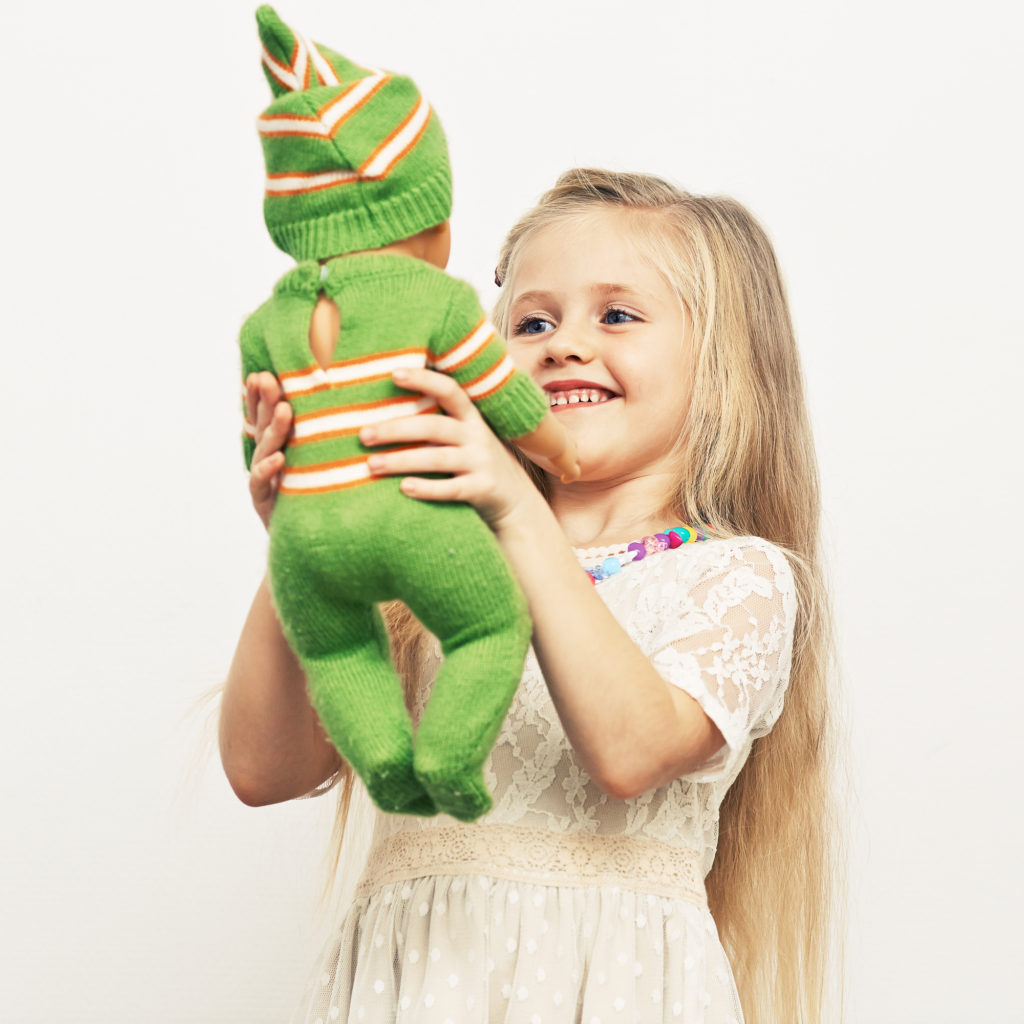Many of us dreamed of being a parent one day. Some of us spent hours as a child taking care of our dolls, bathing them, dressing them and telling them everything would be ok. We watched and copied everything our parents did or what we hoped they would do to take care of us.
Or maybe being a parent wasn’t something that came naturally to you. Maybe you had a challenging childhood and questioned what kind of parent you would be?

Regardless, parenthood isn’t easy and to our dismay, babies don’t come with instruction manuals. So what’s a parent to do? How do we best navigate those challenging and exhausting moments? How can we bring more balance and harmony to our life and the life of our families?
As a psychotherapist and parent coach, I have spent years researching these very questions. I have found that there are no easy answers, but there are answers. I’ve found that the key to getting more enjoyment out of parenting begins with an openness and willingness to look within (which, I realize, is not always easy to hear!). It begins with an understanding that the way we were parented doesn’t have to dictate how we parent today.
When I was a new parent (and sometimes even now – 11 years later!), I felt completely overwhelmed, exhausted, frustrated and baffled by many of the behaviors I was seeing and challenging moments I was having with my kids. I used to think to myself, “None of these behaviors would’ve been tolerated by my parents!” It took me a while to realize that I was playing a big role in the “problem.” Trust me, it wasn’t easy to admit! My expectations of how I thought my kids “should be” behaving simply weren’t realistic and my reactions weren’t helping any of us. Things had to change. For me, it began with taking responsibility for my own behavior and committing to parenting in a more mindful, encouraging way, so that I could build the connected and respectful relationship I knew I wanted and needed with my family.
Life is busy and hectic these days. It’s all too easy to become impatient and easily annoyed. We may find ourselves triggered by something our child says or does, so we either lash out at them, worry their “misbehavior” will only get worse if we don’t “nip it in the bud” or both! In these impatient, annoyed states, how often have you said to yourself, “I sound just like my mother/father!?”
We’ve all been there!
As Dr. Laura Markham says, “We all have our buttons (triggers), but our children did not install them!” The thing is, when we allow ourselves time to pause, slow down, reflect and become aware of these patterns, a beautiful thing happens. We invite the potential to become more present and focused, which, inevitably, leads to more cooperative behavior from our children.
Getting more enjoyment out of parenting, begins with being present – fully “showing up.” We need to practice letting go of the need to control every moment and every behavior and instead tune into and appreciate who our child really is – not who we want or need him/her to be.
Being present is more than simply listening with our ears, it’s listening with our hearts. It’s about appreciating and valuing the amazing being in front of us with all his hopes, dreams fears and insecurities, with acceptance and understanding, rather than criticism and judgment.

Being present involves accepting our own imperfections and treating ourselves with the same loving kindness we give or hope to give to our child. Our children don’t want (or need) us to be perfect – they need us to accept ourselves so that we can then accept them and all of their imperfections. When we accept ourselves and are willing to make mistakes, we teach our children that mistakes are how we learn, grow and evolve.
Our children are little sponges picking up on every detail of our communication, both verbal and nonverbal. Think about what messages you want to send your child about self-confidence, self-compassion and resiliency. Strive to model the very behaviors you hope to instill in your children as they grow.
When children misbehave, as they all do, they are doing so to get their needs met and because they’re dealing with strong emotions they are not yet able to rationally process. They are also working hard to figure out this big, complicated world and are doing the best they can with the skills that they have – we all are!
If parenting has become overwhelming for you because you have a misbehaving or challenging child, you are certainly not alone! Here are 7 suggestions to help restore your sanity, increase the connection to your child and begin to more fully enjoy parenting:
- Pause before parenting.Take a break, walk away, BREATHE and center yourself before responding to your child. Figure out what you need to do to take care of you in those stressful moments. Then, consider the needs of your child and what need she is attempting to have met (is she feeling disconnected? in need of more attention from you? feeling powerless? hungry? tired?). Be curious and try asking questions, rather than lecturing. You may be surprised at the answers.
- Become your child’s “Emotion Coach.” Use empathy to help your child understand what he is feeling. This meets your child’s need to feel understood and valued, while building their emotional intelligence. When you address the underlying reasons for the behavior, rather than the behavior itself, you’ll see a change in your child. For example, when faced with back talk, “You must feel really angry to be speaking to me that way. It’s ok to be frustrated, it’s not ok to be disrespectful. What’s going on? Let’s talk about it.” Later, when you’re both calm, you can review with your child your expectation for respectful communication and how he can better handle the situation next time.
- Ask for the behavior you want. Children receive thousands of negative commands every day. “Don’t jump on the bed.” “No hitting.” “Don’t do that.” “Stop it already!” It helps to give a child directions they can successfully follow. A child feels loved and capable when she can do what you’re asking her to do. Tell your child the behavior you want to see vs. the behavior you want her to stop. For example, “The couch is for sitting.” “Keep your feet on the floor/hands to yourself.“ “Food is for eating, not throwing.” “We use gentle hands like this.” etc.
- Offer appropriate (and limited) choices. Children have a need to feel a sense of power and control. By offering choices, you meet this need and reduce the likelihood of a power struggle. For example, “Would you like the red cup or the blue cup?” “Would you like to put out the napkins or the silverware?” “Would you like to start your homework now or after a snack?” “Would you like to brush your teeth first or put on your pj’s first?”
- Create “Special Time.” When your child is misbehaving, he’s sending the message that he feels disconnected from you. Carving out time in your day where your child can have 100% of your attention and he directs the play or how you spend the time can work wonders for your relationship. When your child acts out, it’s as though he’s saying, “My heart tank is empty.” Quality, uninterrupted time with your child (even 10 minutes a day) helps to refuel your child and your connection.
- Teach your child about mindful breathing and how to ask for what he/she wants. For young children, you can have them hold up both hands. Have them pretend there is a flower in one hand and a candle in the other. Show them how to “smell the flower and blow out the candle.” Older kids will enjoy the multitude of mindfulness meditation apps such as “Smiling Mind” and “Stop, Breathe and Think.” Consider developing a mindfulness practice as a family. Once a child is calm, she can then be taught how to ask for what she wants and/or needs in an appropriate way. You can also teach your child to ask for attention versus acting out for attention. Be sure to offer hugs and teach your child she can ask for a hug whenever she needs one.
- Bring in PLAYFULNESS. With our endless lists of “to-do’s” and our constant rushing from one activity to another, we often forget the value of simply being in the moment, appreciating the moment and not taking it all so seriously. The beautiful thing about young children is that they are almost always in the “here and now.” Unlike adults, they are not overly concerned with what happened yesterday or what will happen in the future. Take a lesson from your kids – bring in the silliness and playfulness. Throw on music when it’s time to clean up, have dance parties, make your requests in goofy voices, give a piggyback ride up the stairs or crawl like tigers when it’s teeth brushing time. Play is the language children know best!
Finding joy in parenthood begins with appreciating our imperfect selves in order to accept the imperfections in our children. None of us are perfect. We’re not meant to be perfect. It’s our imperfections that make us so colorful and unique! We must also realize that parenting isn’t always blissful and that’s ok! We all have good days and not so good days because it’s all part of the journey. Find your tribe of support and put yourself back on your list of “to do’s.” As they say, “You can’t pour from an empty cup!” YOU matter!
All the best,
Debbie
